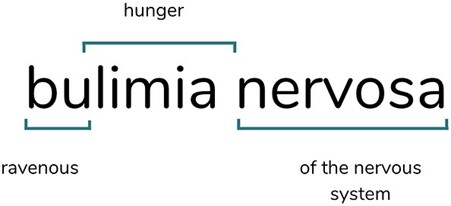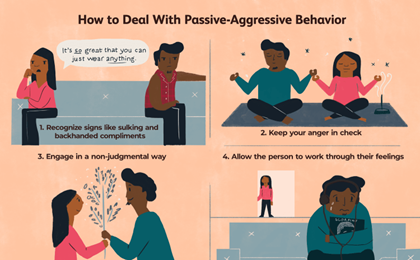Which best describes a characteristic of bulimia nervosa?
Always avoiding social gatherings and family meals
Bingeing on unhealthy food and purging after, to induce vomiting.
Restricting caloric intake all the time
Following a very strict diet and exercise program
The Correct Answer is B
Bulimia nervosa is an eating disorder characterized by recurrent episodes of binge eating followed by inappropriate compensatory behaviors such as self-induced vomiting, misuse of laxatives or diuretics, fasting, or excessive exercise. Binge eating refers to the consumption of an abnormally large amount of food within a short period, accompanied by a feeling of loss of control overeating. After bingeing, individuals with bulimia nervosa feel guilty, ashamed, and anxious about their behavior, and try to compensate by purging.
Options a, c, and d are incorrect as they do not accurately describe the characteristic features of bulimia nervosa.
Avoiding social gatherings and family meals is a characteristic of social anxiety disorder, not bulimia nervosa. Restricting caloric intake all the time is a characteristic of anorexia nervosa, a different type of eating disorder. Following a strict diet and exercise program is not necessarily a characteristic of bulimia nervosa, although some individuals with bulimia nervosa may engage in excessive exercise as a compensatory behavior.

Nursing Test Bank
Naxlex Comprehensive Predictor Exams
Related Questions
Correct Answer is A
Explanation
Passive-aggressive behavior is characterized by indirect resistance to the demands of others and an avoidance of direct confrontation. In this case, the worker is demonstrating passive-aggressive behavior by initially agreeing to the project but then making excuses and not completing it.

Correct Answer is D
Explanation
If the nurse has concerns about the prescribed dose of an antianxiety medication being higher than the usual adult dose, they should hold the medication and consult with the health care provider before administering it. This will allow the health care provider to review the prescription and make any necessary adjustments to ensure the safety and well-being of the patient.
Whether you are a student looking to ace your exams or a practicing nurse seeking to enhance your expertise , our nursing education contents will empower you with the confidence and competence to make a difference in the lives of patients and become a respected leader in the healthcare field.
Visit Naxlex, invest in your future and unlock endless possibilities with our unparalleled nursing education contents today
Report Wrong Answer on the Current Question
Do you disagree with the answer? If yes, what is your expected answer? Explain.
Kindly be descriptive with the issue you are facing.
